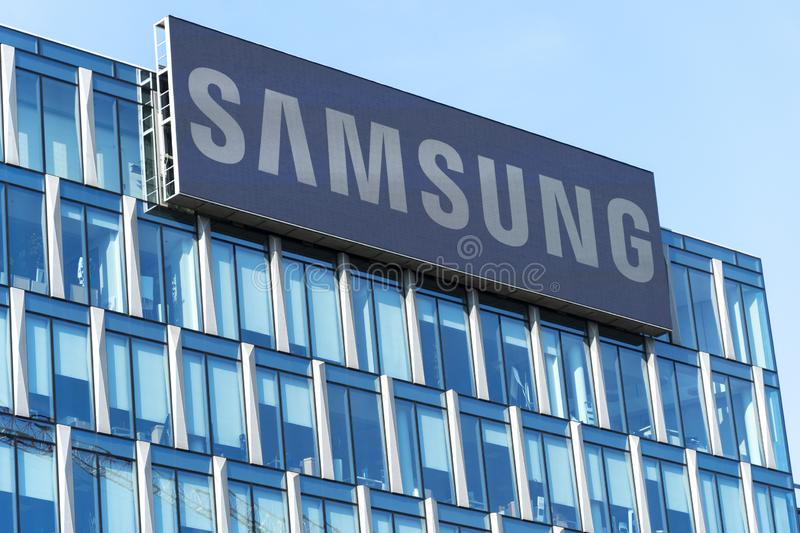Introduction for Samsung Co. Business model-
Samsung is a large and diversified multinational company that has established itself as a leader in many of its industries, including electronics, semiconductors, home appliances, and financial services. The company’s business model is based on several key principles that have allowed it to succeed in a highly competitive and rapidly changing global market.
One of Samsung’s key strengths is its focus on innovation. The company has a strong track record of introducing cutting-edge technologies in its products, such as its foldable smartphones, advanced semiconductors, and high-resolution displays. Samsung invests heavily in research and development to stay ahead of its competitors and to meet the evolving needs of its customers.
Another key principle of Samsung’s business model is its emphasis on quality. The company has implemented a rigorous quality control system that spans its entire supply chain, from component sourcing to production and distribution. This focus on quality has helped Samsung optimize efficiency, reduce costs, and improve customer satisfaction.
Samsung’s business model also emphasizes diversification. The company operates in a wide range of industries, which allows it to mitigate risk and capitalize on growth opportunities in different markets. Samsung’s portfolio of products ranges from smartphones and TVs to refrigerators and washing machines, as well as financial services such as insurance and credit cards.
What is Samsung’s business model?
Samsung’s business model is a diversified conglomerate that operates across a wide range of industries including electronics, semiconductors, home appliances, and financial services. The company’s business model focuses on vertical integration, where it controls all stages of the production process, from research and development to manufacturing and marketing, to ensure maximum efficiency and quality control.
Samsung’s business model is also centered around innovation and technology leadership, investing heavily in research and development to stay ahead of its competitors. This focus on innovation has led to the development of numerous groundbreaking technologies, such as OLED displays, memory chips, and mobile devices, which have helped Samsung maintain a strong market position in these areas.
In addition, Samsung’s business model involves a strong emphasis on marketing and branding, with the company investing heavily in advertising and promotional activities to create a strong brand image and increase customer loyalty.
Overall, Samsung’s business model is characterized by a combination of vertical integration, innovation, and marketing excellence, which has helped the company maintain a strong market position in a wide range of industries.
What is Samsung most successful product?
Samsung has a diverse range of successful products across various industries, but one of the most successful products in the company’s history is the Samsung Galaxy smartphone series. Since the launch of the first Galaxy smartphone in 2010, the series has become one of the most popular and successful smartphone brands in the world.
The Galaxy series has consistently introduced cutting-edge technologies and features that have helped Samsung maintain a competitive advantage in the highly competitive smartphone market. Some of the most notable features of the Galaxy series include large high-resolution displays, powerful processors, high-quality cameras, and advanced software.
In addition to the Galaxy series, Samsung has also had success in other product categories, such as televisions, semiconductors, and home appliances. The company’s QLED and OLED televisions have received critical acclaim for their image quality, while its semiconductors are used in a wide range of products, including smartphones, tablets, and computers. Samsung’s home appliances, such as refrigerators and washing machines, have also been popular among consumers for their quality and innovative features.
Overall, while Samsung has had many successful products over the years, the Galaxy smartphone series has been one of the company’s most successful and widely recognized products.
What makes Samsung so successful?
Samsung’s success can be attributed to a combination of factors, including its business strategy, product innovation, brand image, and financial strength.
- Business Strategy: Samsung has a diversified business model that operates across multiple industries, allowing it to spread risk and maximize profits. The company’s vertical integration strategy, which involves controlling all stages of the production process, from research and development to manufacturing and marketing, ensures maximum efficiency and quality control.
- Product Innovation: Samsung is known for its innovation in the technology industry, investing heavily in research and development to stay ahead of its competitors. This focus on innovation has led to the development of numerous groundbreaking technologies, such as OLED displays, memory chips, and mobile devices, which have helped Samsung maintain a strong market position in these areas.
- Brand Image: Samsung has built a strong brand image and reputation for quality and reliability, which has helped it maintain customer loyalty. The company invests heavily in marketing and advertising to create a strong brand image and increase customer loyalty.
- Financial Strength: Samsung is a financially strong company, with significant cash reserves and a strong balance sheet. This financial strength has allowed the company to invest heavily in research and development and expand into new markets and industries.
Overall, Samsung’s success can be attributed to its diversified business model, focus on product innovation, strong brand image, and financial strength.
What are the challenges of Samsung company?
Despite its success, Samsung faces several challenges in its business operations. Some of the key challenges facing the company include:
- Intense competition: Samsung operates in highly competitive industries, including smartphones, TVs, semiconductors, and home appliances. The company faces strong competition from rivals such as Apple, LG, and Huawei, which can impact its market share and profitability.
- Changing consumer preferences: Consumer preferences and trends are constantly evolving, which can impact Samsung’s product development and marketing strategies. The company must stay up-to-date with changing consumer preferences to remain relevant and competitive.
- Technological advancements: Samsung must continue to invest in research and development to stay ahead of the curve in emerging technologies. The company must also navigate the rapid pace of technological change, which can make products and technologies obsolete quickly.
- Geopolitical risks: Samsung operates in many countries around the world, and geopolitical risks such as trade tensions, political instability, and currency fluctuations can impact its operations and profitability.
- Environmental concerns: Samsung has faced criticism over its environmental practices, including allegations of pollution and waste. The company must address these concerns and take steps to reduce its environmental impact.
Overall, while Samsung has faced and continues to face several challenges, the company has a strong track record of innovation and adapting to changing market conditions.
Why Samsung is one of the most innovative companies?
Samsung is considered one of the most innovative companies for several reasons:
- Research and Development: Samsung invests heavily in research and development to stay ahead of its competitors. The company has numerous research and development centers around the world, and a significant portion of its budget is dedicated to developing new technologies and products.
- Vertical Integration: Samsung’s vertical integration strategy enables it to control all stages of the production process, from research and development to manufacturing and marketing. This approach allows Samsung to optimize its production process and ensure high-quality products.
- Product Diversity: Samsung is involved in numerous industries, including electronics, semiconductors, home appliances, and financial services. This diversification allows the company to spread risk and maximize profits.
- Technological Leadership: Samsung has been at the forefront of technological advancements in various industries, including mobile devices, displays, semiconductors, and home appliances. The company has numerous patents and has been recognized for its innovative products.
- Collaboration: Samsung has established partnerships and collaborations with other companies and organizations to enhance its research and development capabilities and expand its market reach.
Overall, Samsung’s commitment to research and development, vertical integration, product diversity, technological leadership, and collaboration make it one of the most innovative companies in the world.
Who are Samsung strong competitors?
Samsung faces competition from various companies in different industries. Some of its strongest competitors include:
- Apple: Apple is a major competitor to Samsung in the smartphone and tablet markets. The two companies are known for their fierce rivalry, with Apple’s iPhones and iPads competing directly with Samsung’s Galaxy devices.
- Huawei: Huawei is a Chinese company that competes with Samsung in the smartphone market. It is known for producing high-quality devices at competitive prices and has been gaining market share in recent years.
- LG: LG is a South Korean company that competes with Samsung in various industries, including home appliances, televisions, and mobile devices.
- Sony: Sony is a Japanese company that competes with Samsung in the electronics and home appliances industries. It is known for producing high-quality televisions, audio systems, and gaming consoles.
- Intel: Intel is an American company that competes with Samsung in the semiconductor industry. It produces a wide range of microprocessors and other computer components that are used in many of the same products as Samsung’s own components.
Overall, Samsung faces stiff competition from a range of strong competitors in various industries. However, the company’s diversified business model and focus on innovation and quality have helped it maintain a strong market position.



